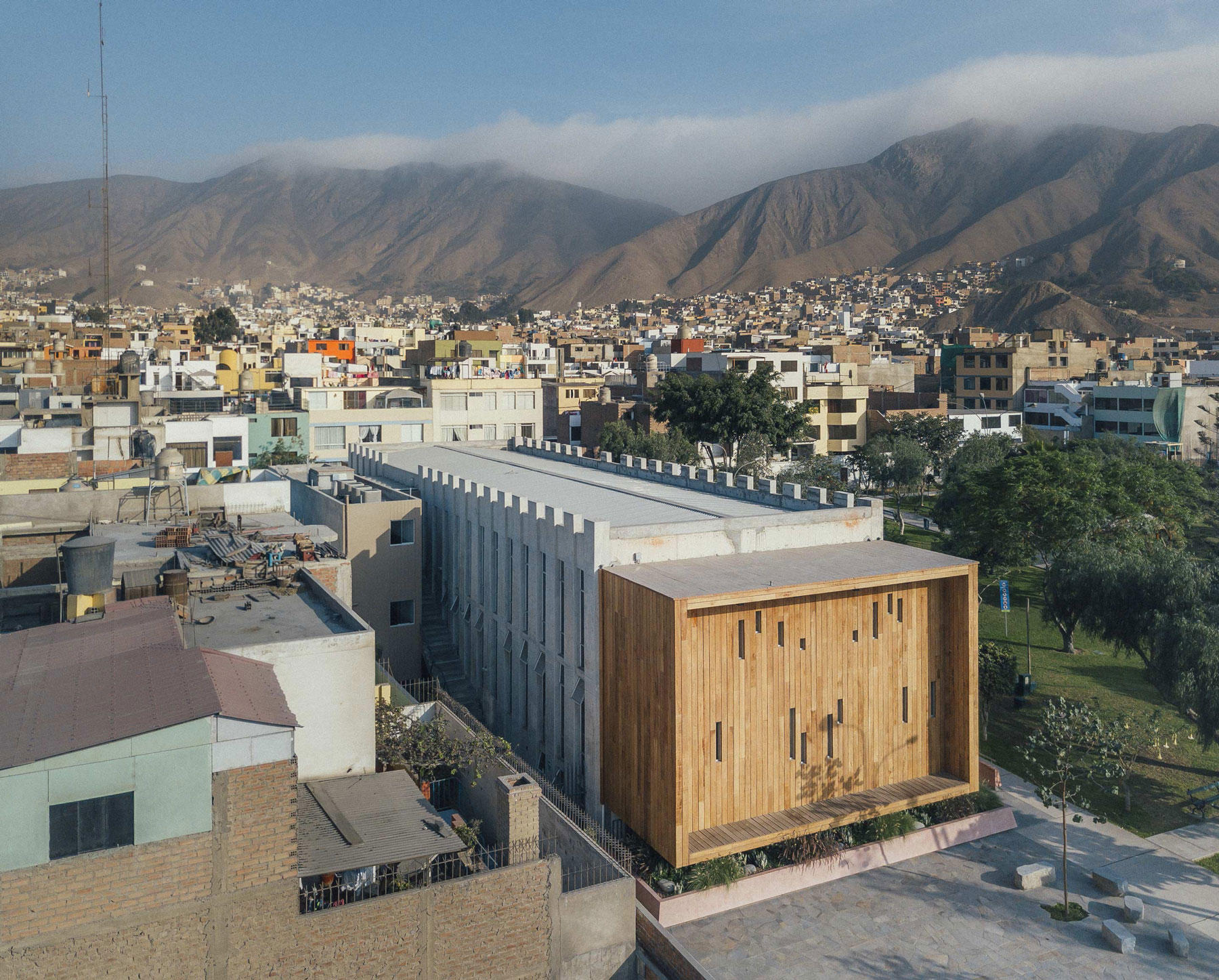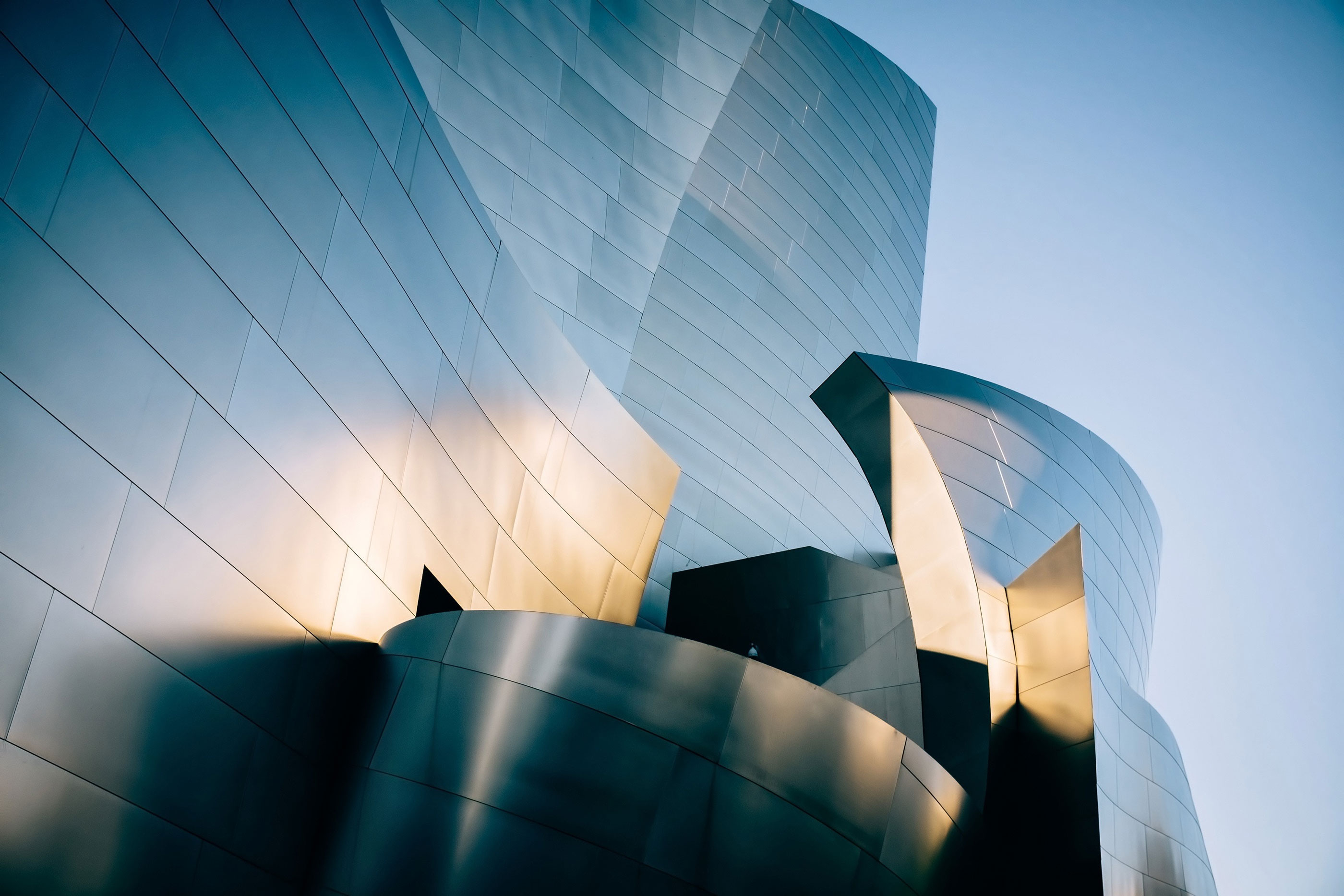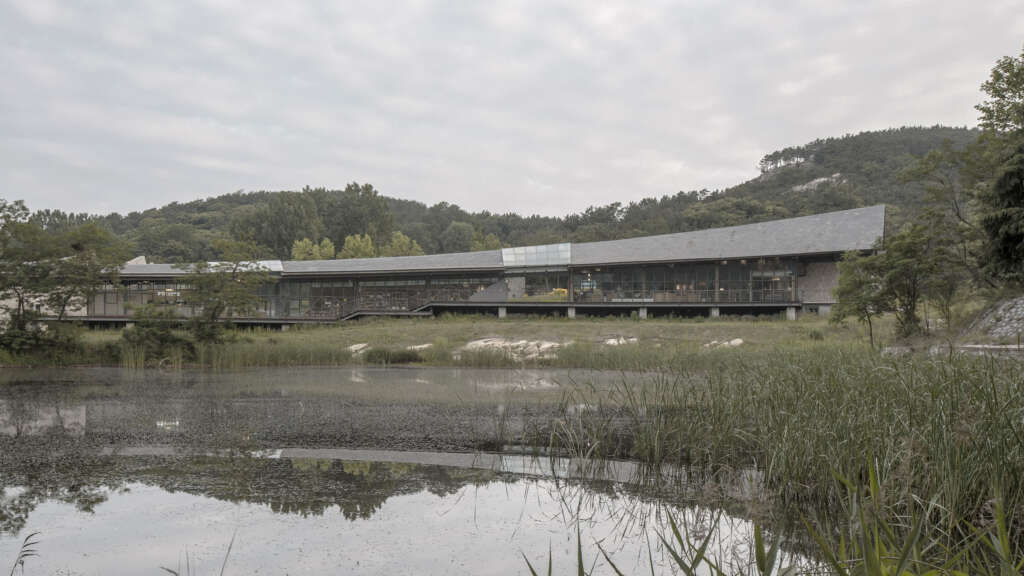
Dragon Mountain Tourist Center
Architect: Aurelien Chen, Urban and Rural Planning and Design Institute of CSCEC
Location: Rizhao, China
Type: Tourist Center
Year: 2023
Photographs: Aurelien Chen, drone photographs courtesy of Rizhao Fada Jituan
An architectural complex adapting to its natural surroundings
The following description is courtesy of the architects. The entrance to Dragon Mountain natural tourist site is marked by a view of the mountain within the axis of the site’s entrance alley. This alley splits into two separate lanes once entered site: one lane climbs up towards the mountain and the other descends slightly towards two small ponds, situated on a lower level and surrounded by trees.
Aiming to adapt the complex to this natural site, the main architectural stance was to fragment the 3000 m² surface into five architectural elements adapting to the topography and the natural context of the site. The five architectural elements are situated and organized around a small square.
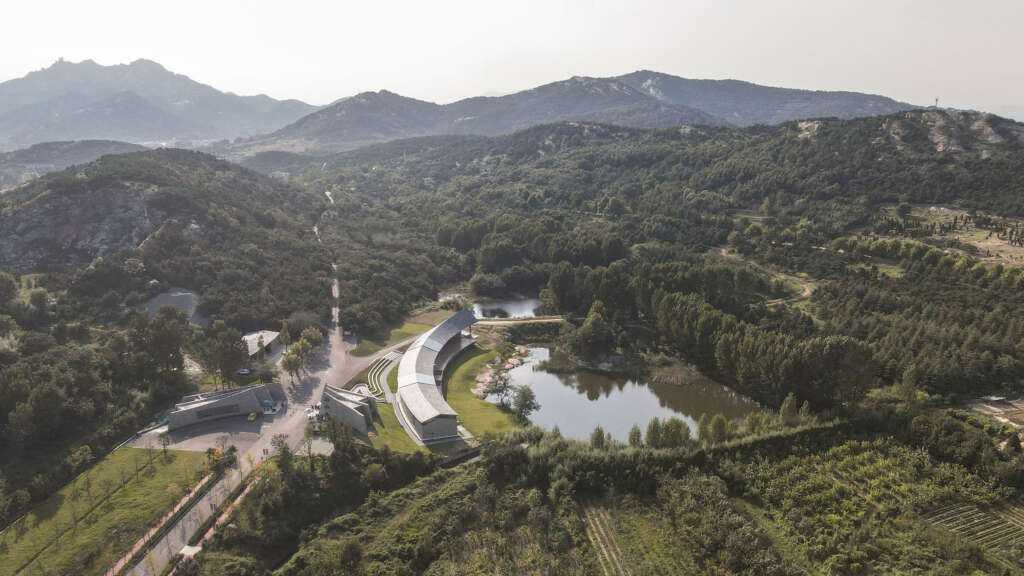
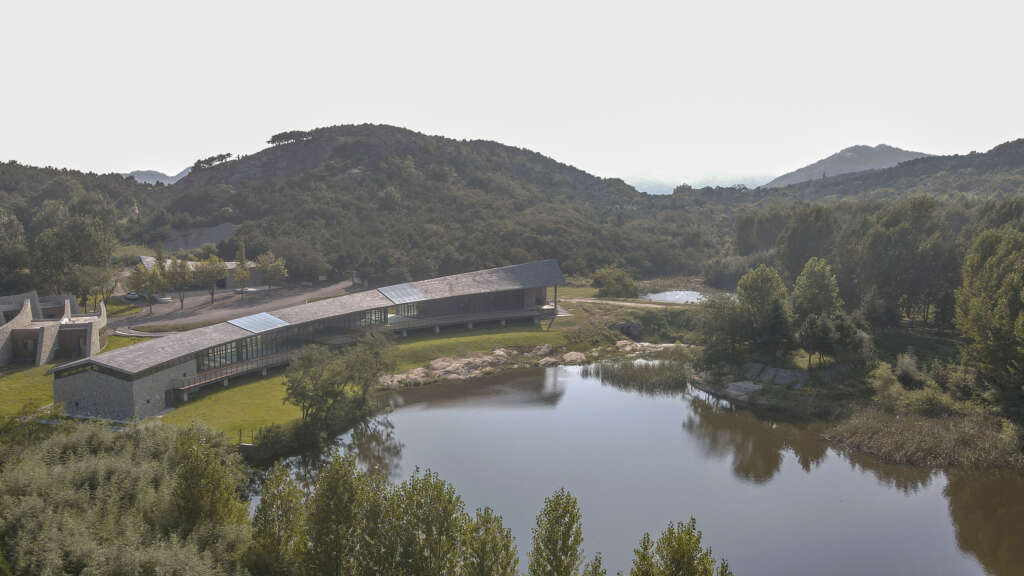
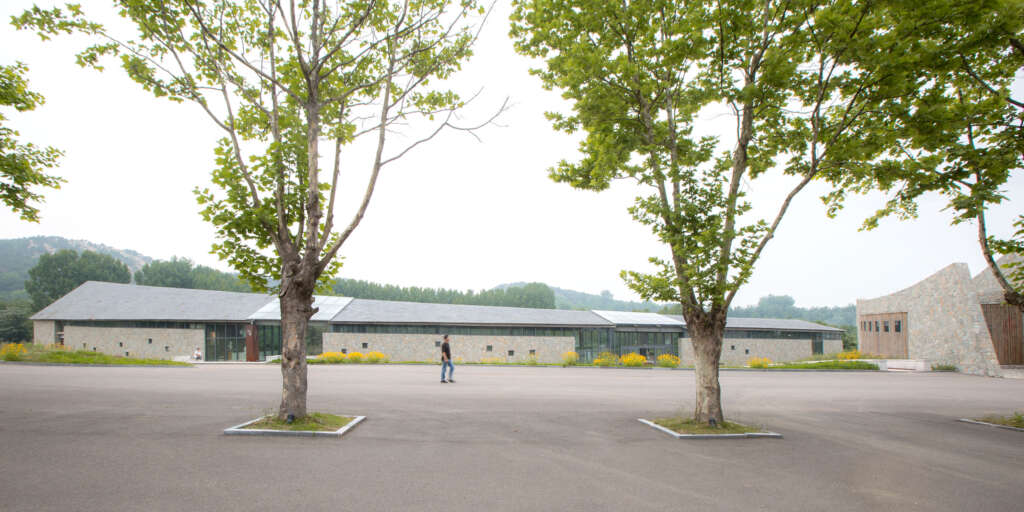
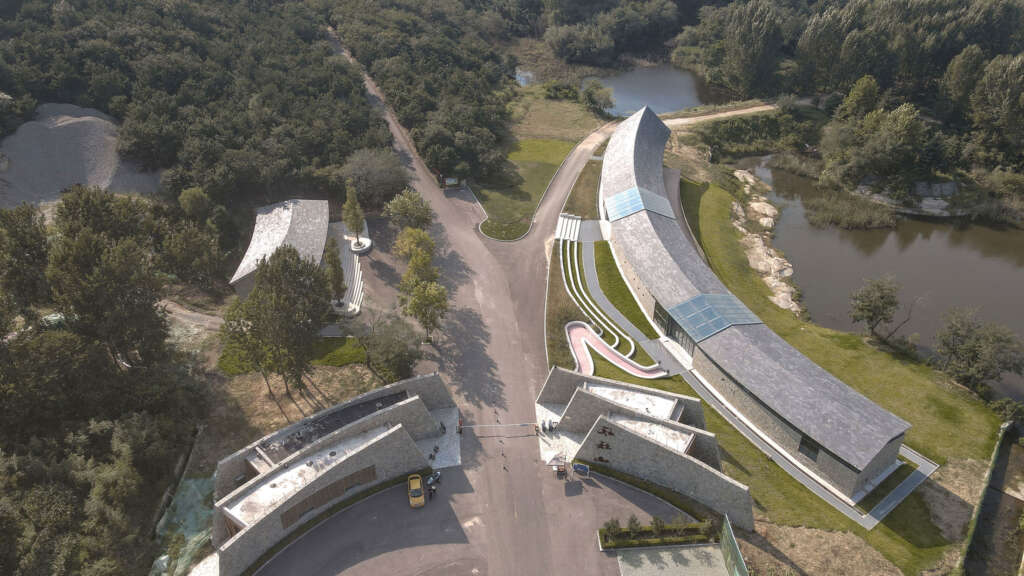
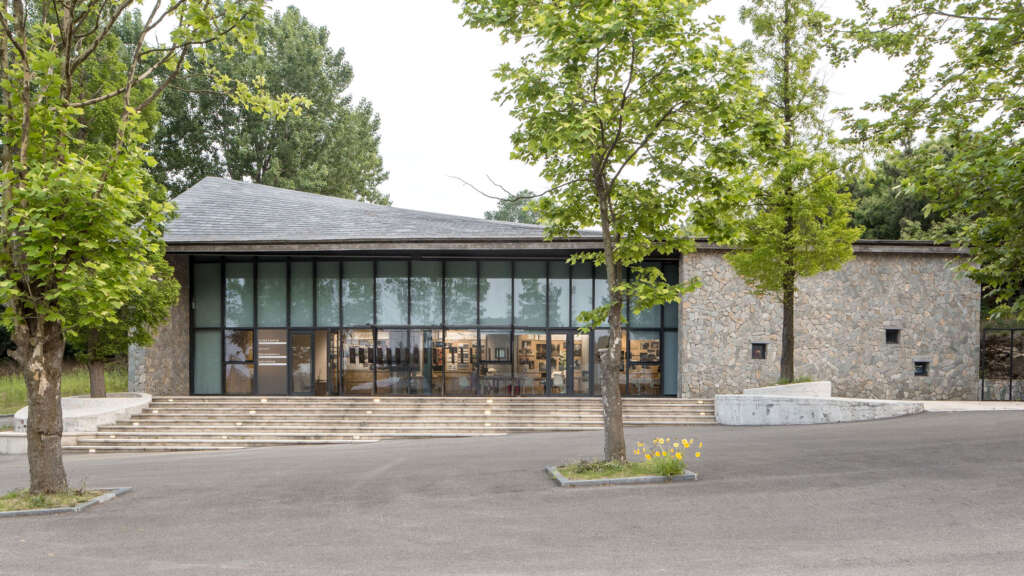
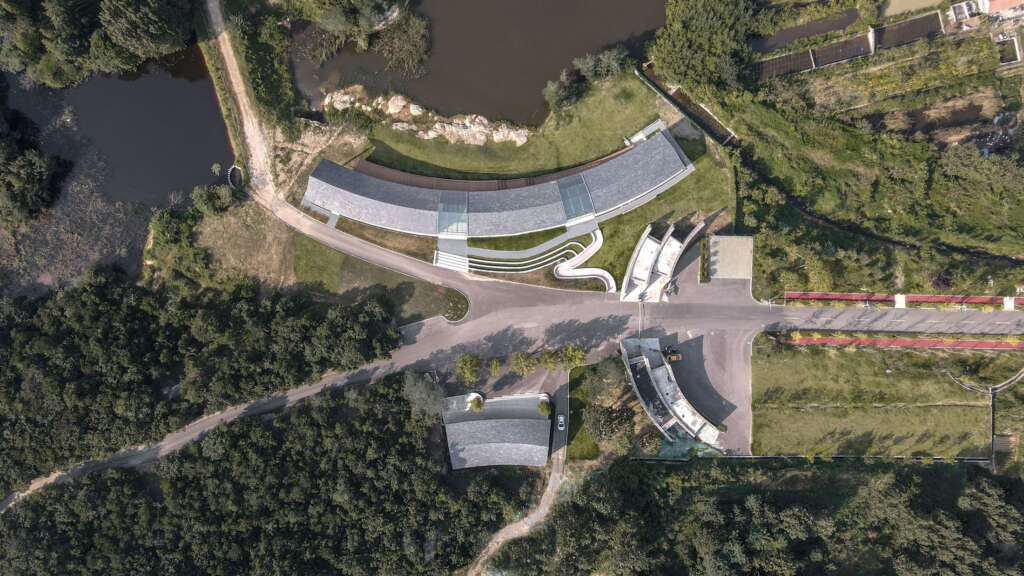
The design of these buildings is pure and slender. They are low on the side facing the site entrance and they rise up and grow in height towards their mountain side. On their lower side, with their mass, these buildings are connected to the Earth. On their higher side, with their geometry, they reach for the Sky, reminding us that, according to Chinese tradition, the human being is closely connected to the Sky and the Earth, and according to Taoism it is part of a Cosmic Triad with Heaven and Earth.
There is a dialogue between the curved buildings and a tension between volumes and empty spaces. In these empty spaces, landscape perspectives are created in order to frame the mountain.
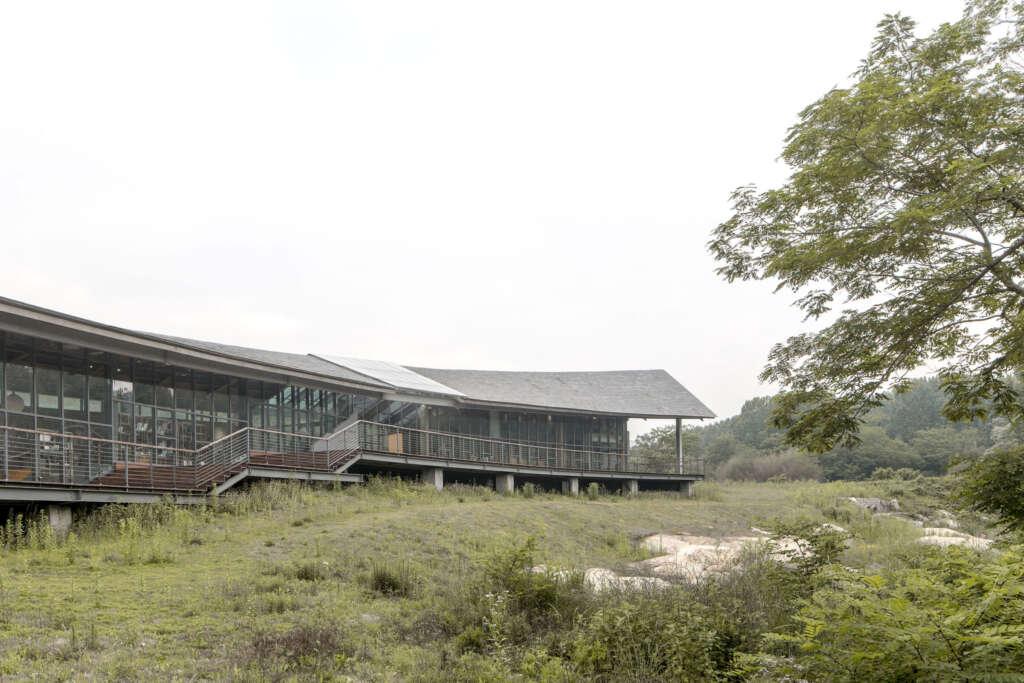
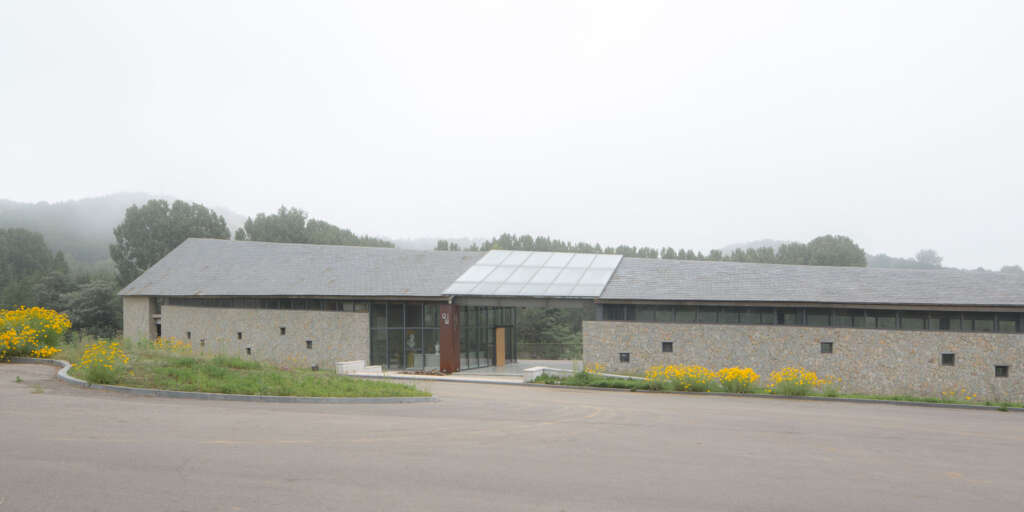
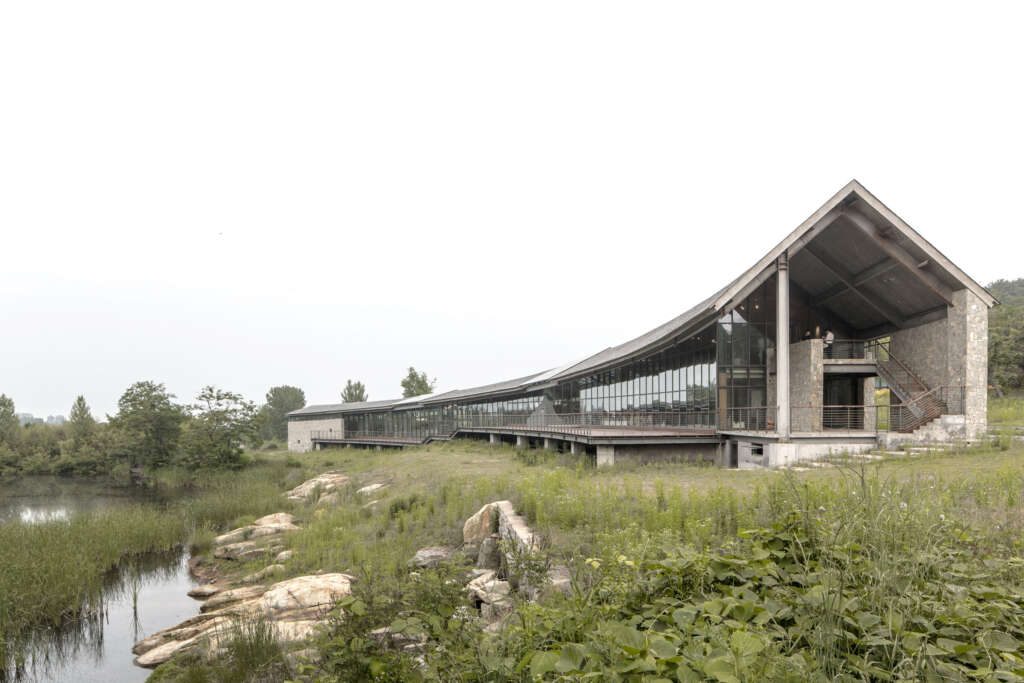
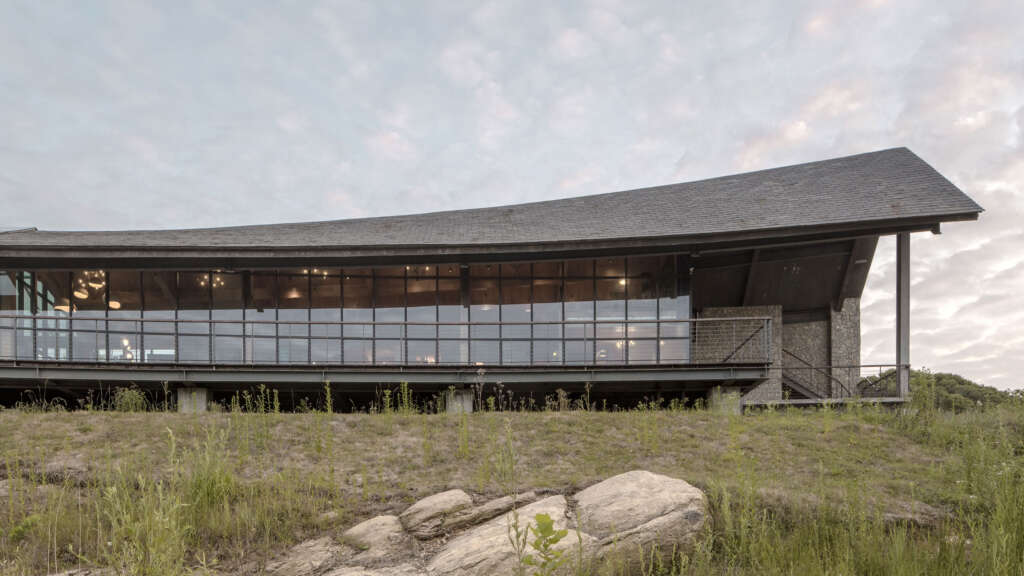
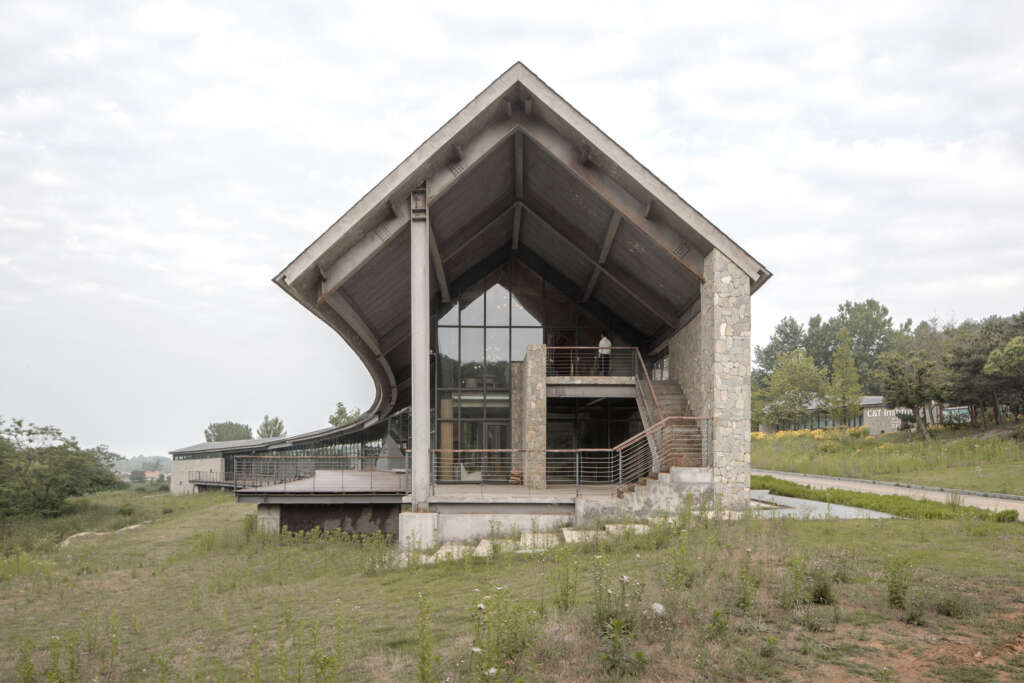
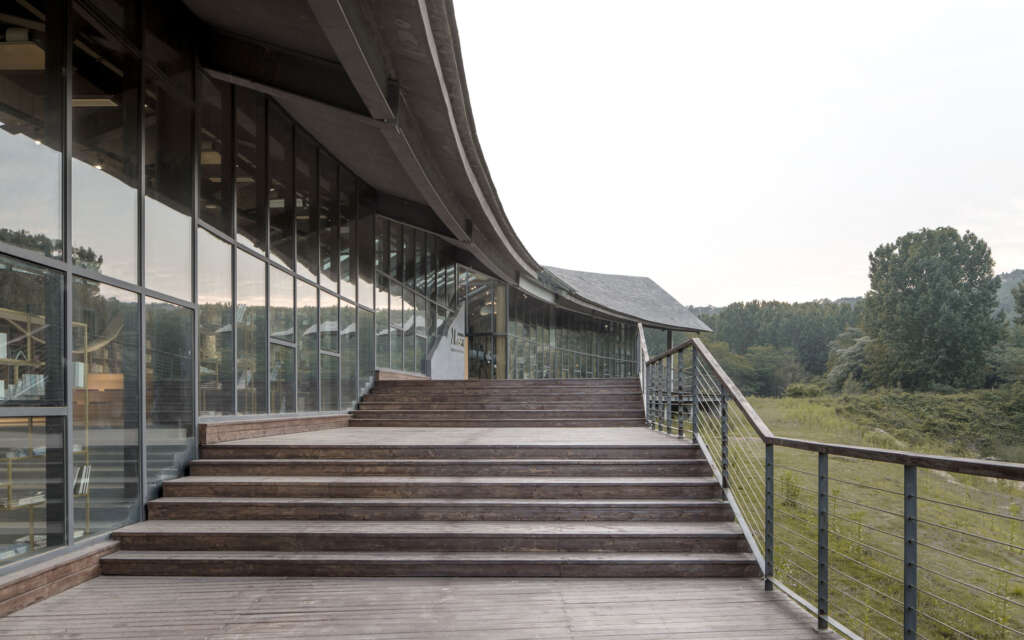
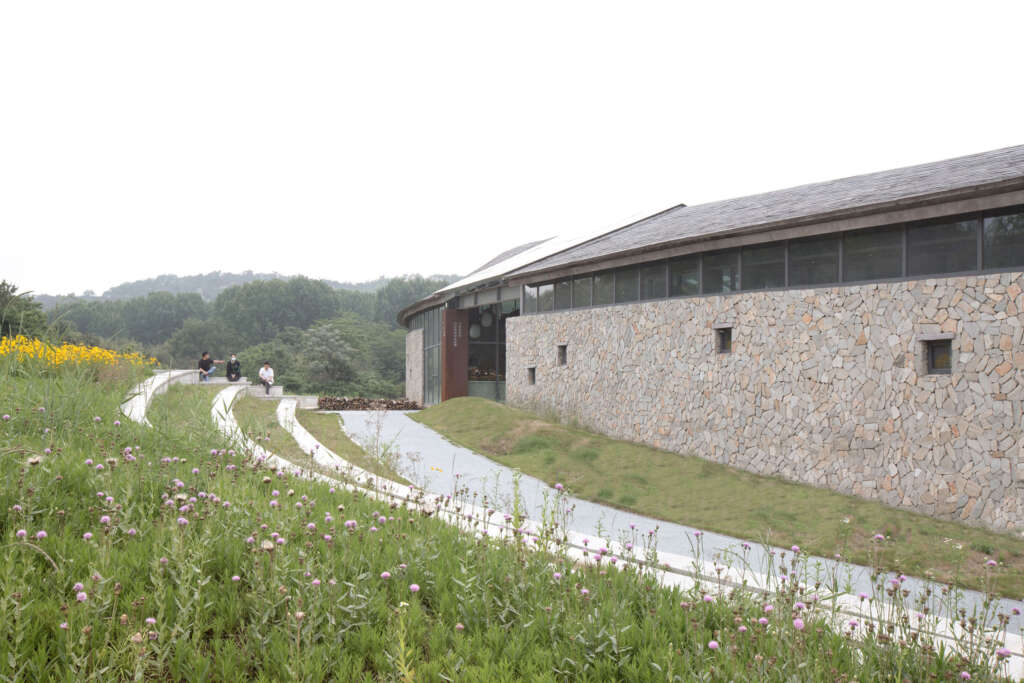
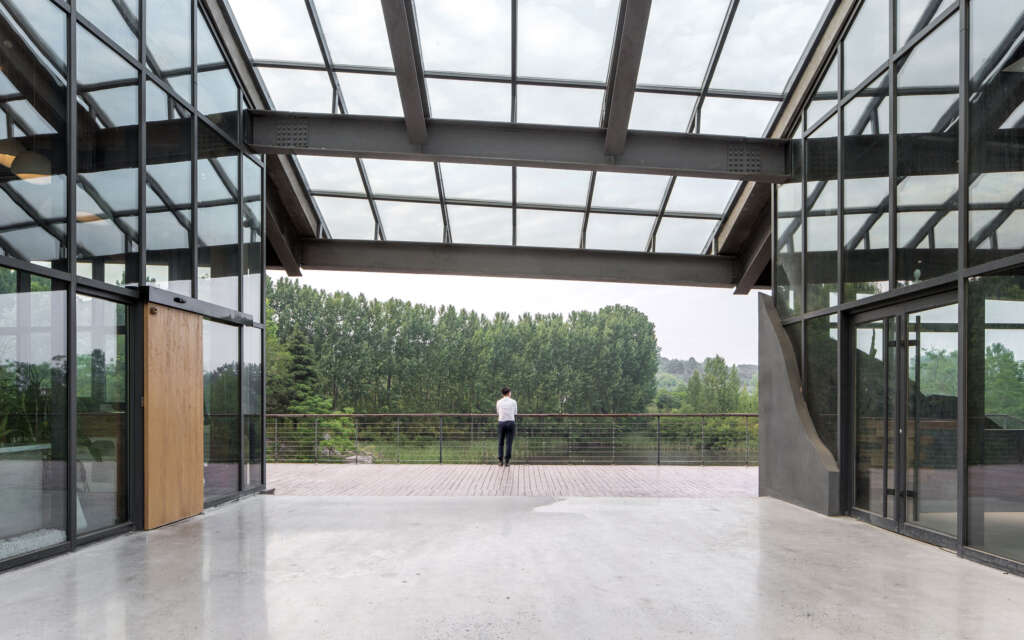
Entrance Gate
In China, entrances to modern touristic sites usually follow a standard approaching sequence: a public square with a monumental sculpture at its centre followed by an entrance gate reminiscent of the traditional ones, a ticket counter and, lastly, an information and welcome centre.
Here, the entrance gate to the site is incorporated into the architectural composition. It houses the ticket counter on one side and the security staff area on the other. Its mass is both architecture and sculpture. It is a visual landmark and attracts the visitors in the distance.
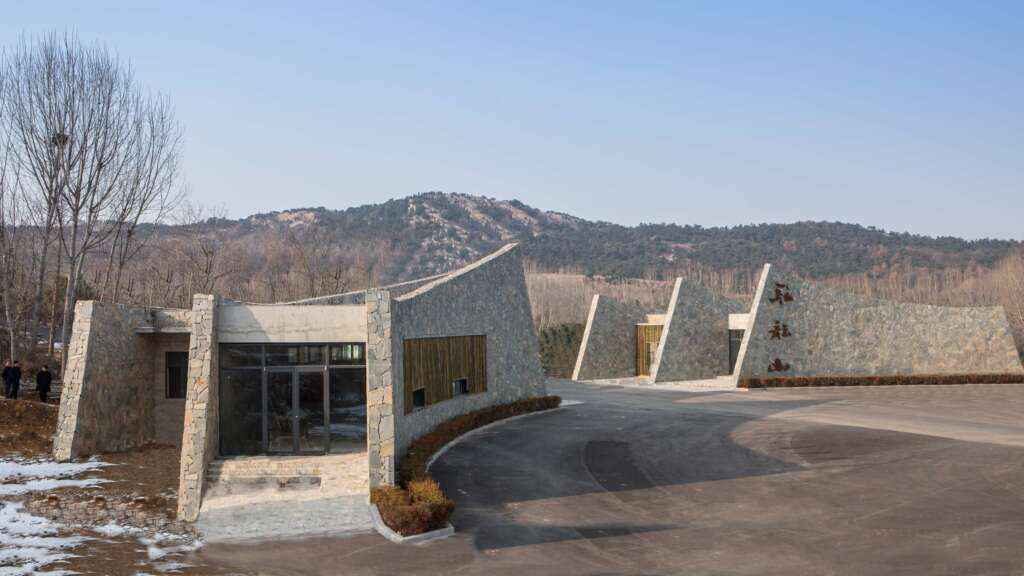
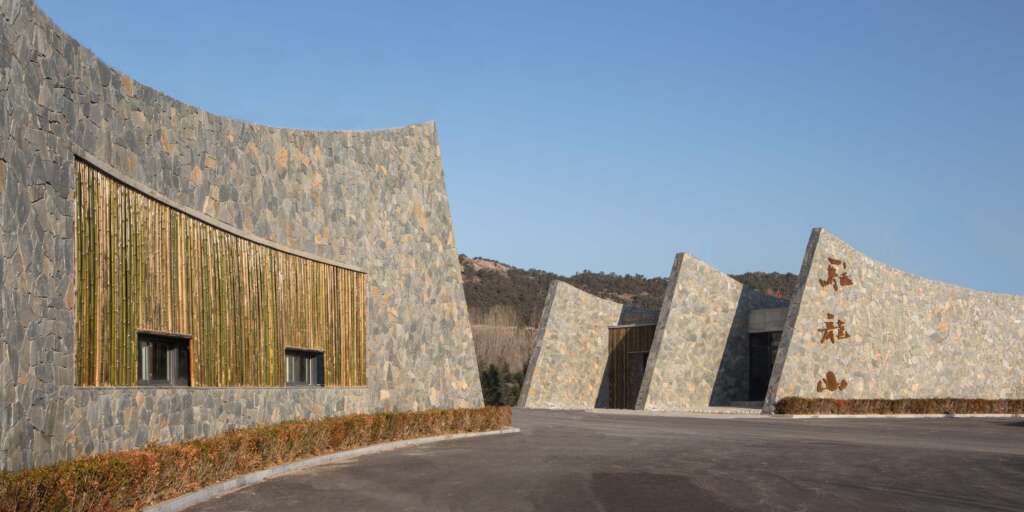
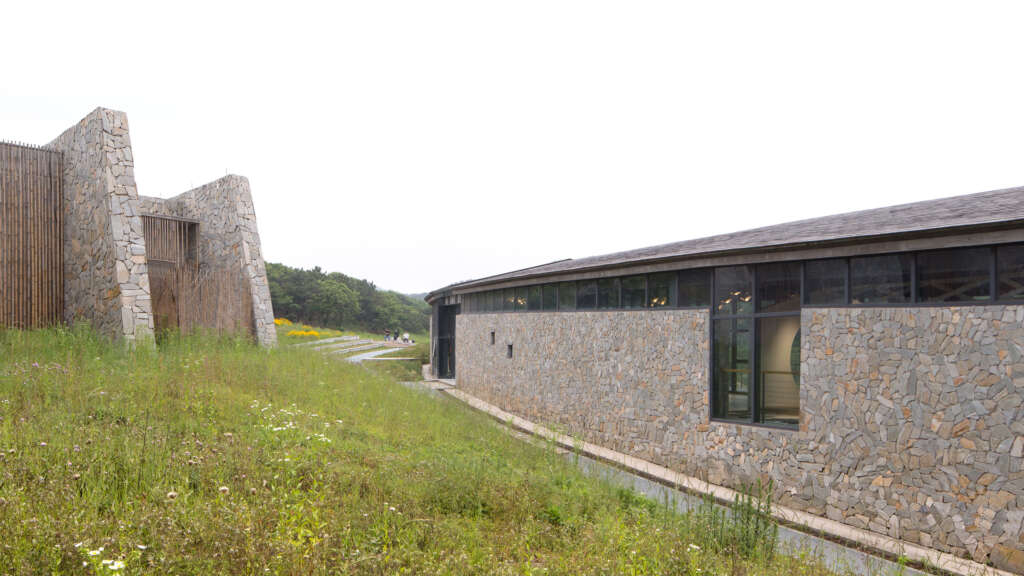
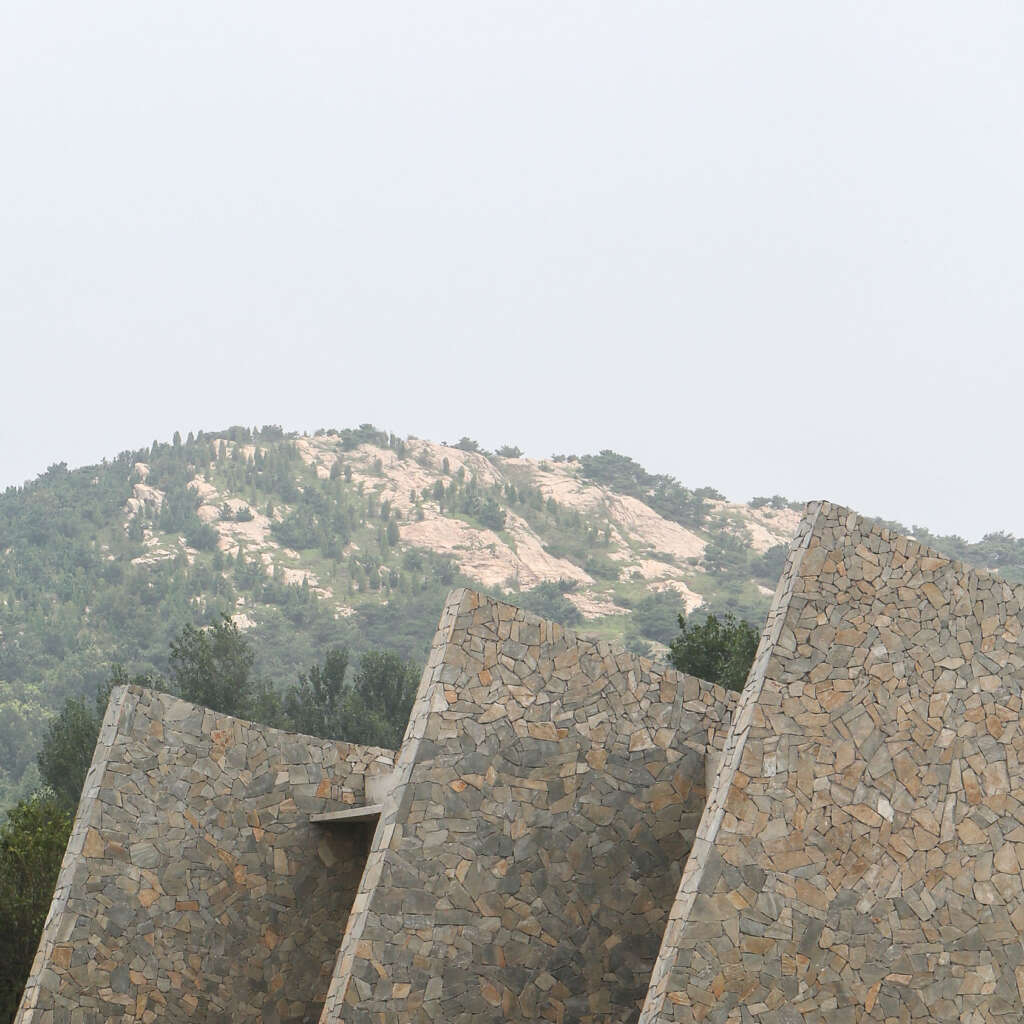
The gate is composed by three rows of arched walls that, in a way common to urban public spaces, creates and delimits the public square just outside the site. Walls are rooted in the ground and they reach for the sky in their centre, reminding of the mountain peaks and also the verticality of the Cosmic Triad Earth- Human Being – Heaven.
There is no portal. Instead, a void, a void becoming a landscape frame on the mountain peaks far in the distance.
The consecutive walls remind of the fortifications that once surrounded cities and traditional palaces and create a peculiar sequence of approach: in their intervals, the visitor discovers the entrances to each separate building.
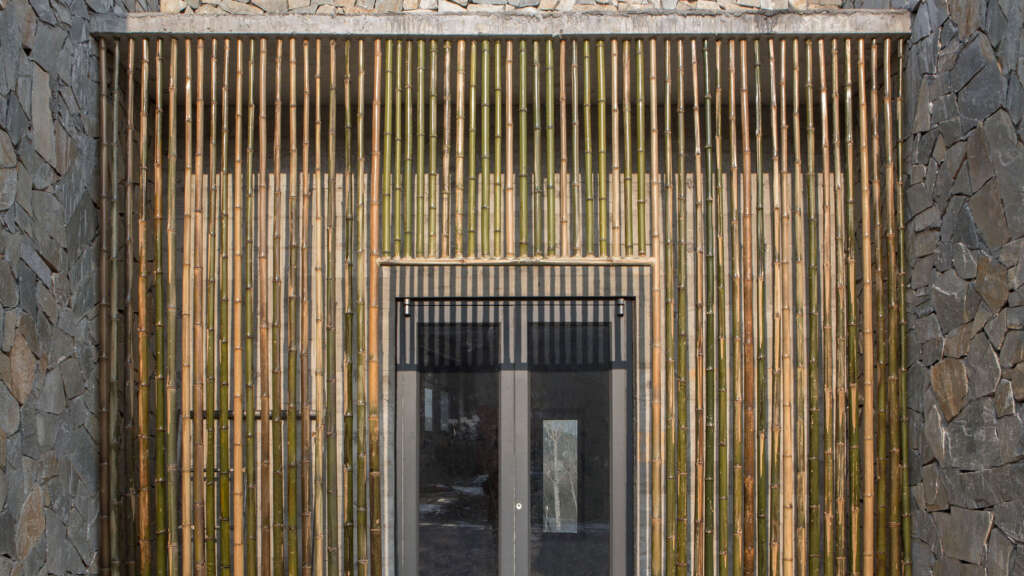
Materials
Stone cladding expresses the concept of mass connected to the Earth and allows a delicate integration of the gate with its natural surroundings and with local architecture.
Raw concrete made from wood formwork reminds of the irregularity of natural elements and can be easily built even by unskilled workers.
A natural screen made of natural bamboo sticks creates a subtle layer between massive concrete/stone and transparent glass.
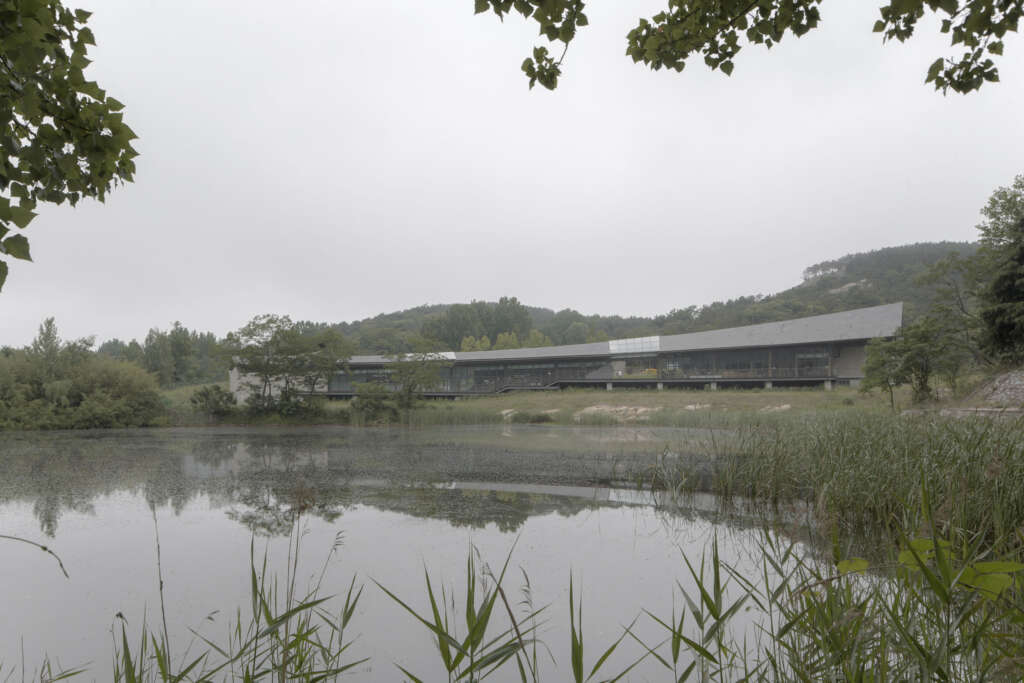
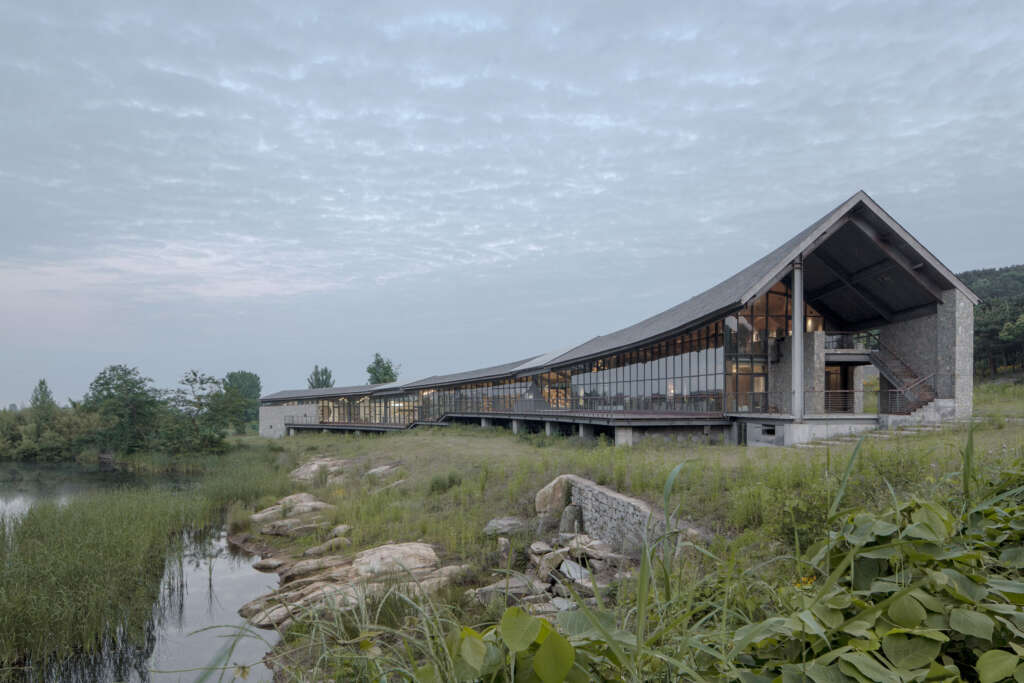
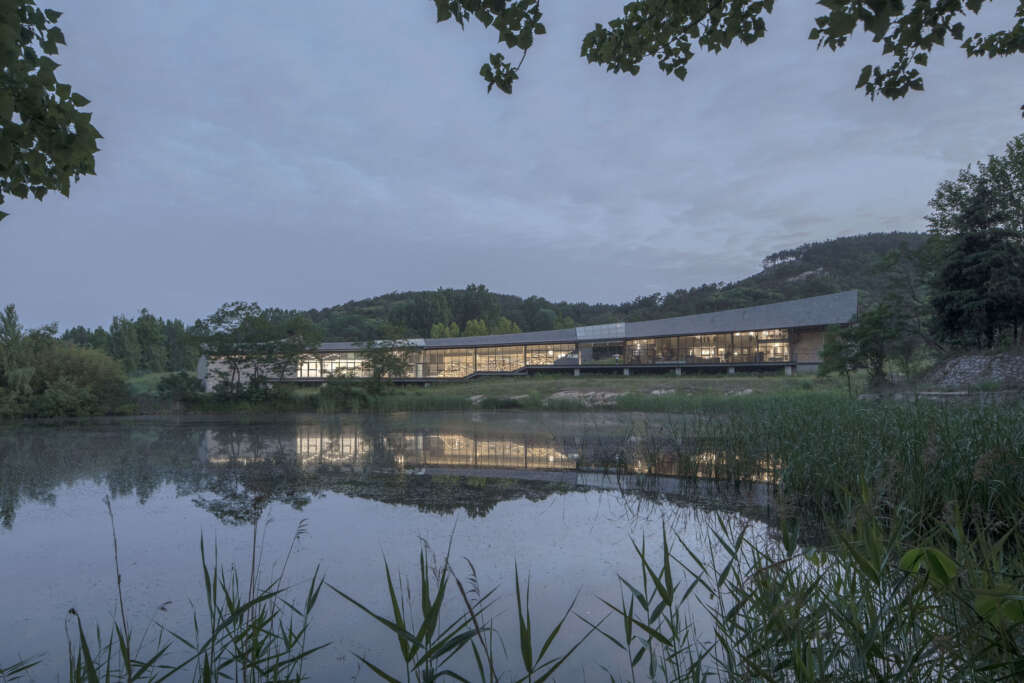
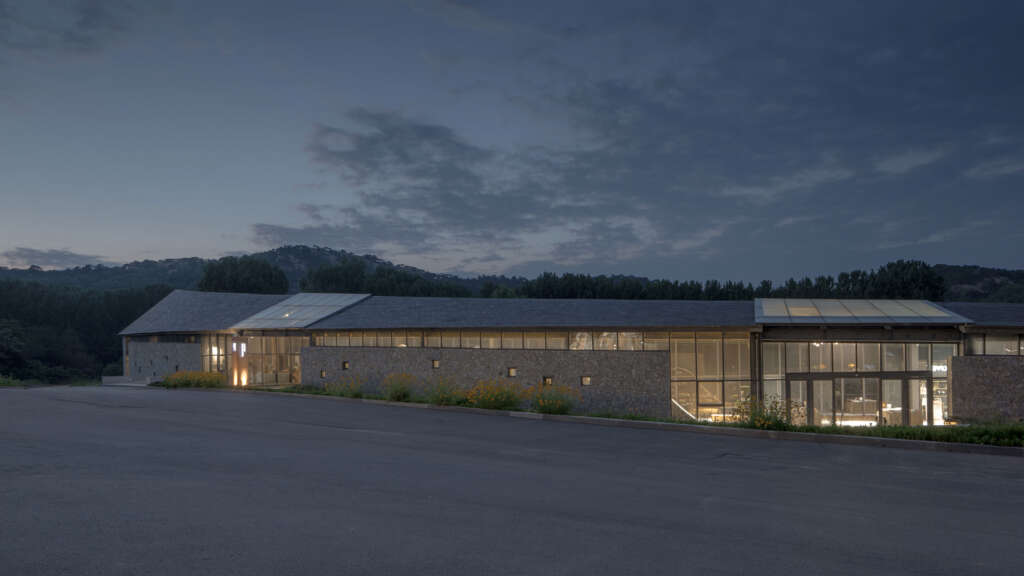
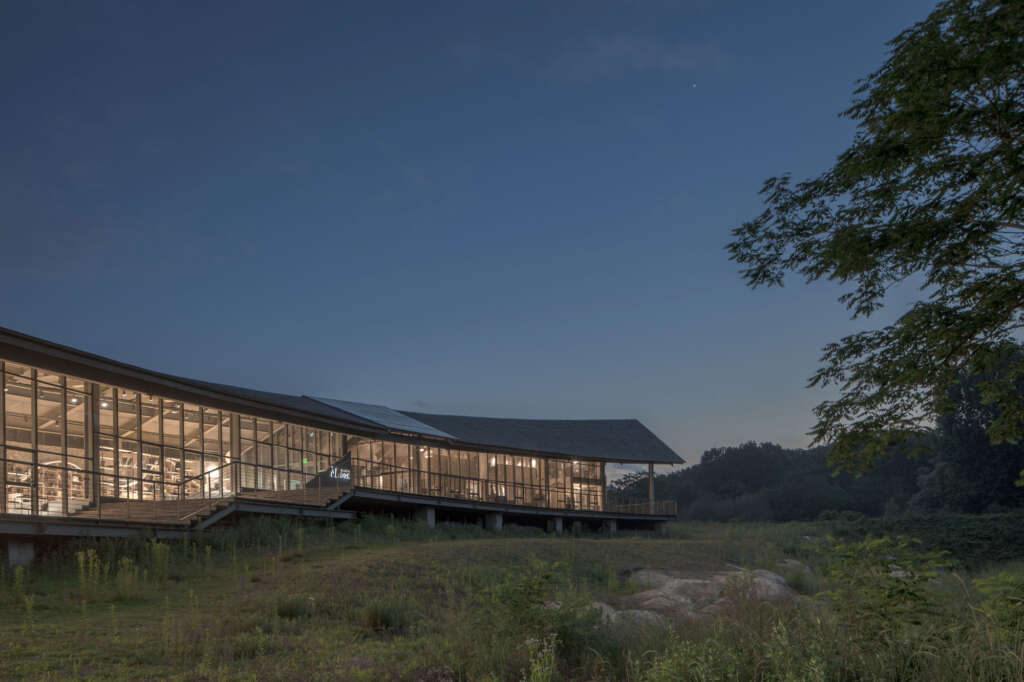
Project Credits
- Architects: Aurelien Chen / Urban and Rural Planning and Design Institute of CSCEC
- Partners in charge: Aurelien Chen, Wu Yixia (Urban and rural planning and design institute of CSCEC)
- Lead Architect: Aurelien Chen
- Design Institute: Urban and rural planning and design institute of CSCEC
- Design team: Aurelien Chen, Ma Jing, Wang Manyu
- Technical collaborator: Lifeng Architecture Studio
- Interior design: out of design scope
- Location: Rizhao, China
- Built Area: 1700 m² (designed area: 2400 m²)
- Client: Rizhao Fada Jituan
- Completion date: 2023
- Photographs: Aurelien Chen (except drone photographs courtesy of Rizhao Fada Jituan)



